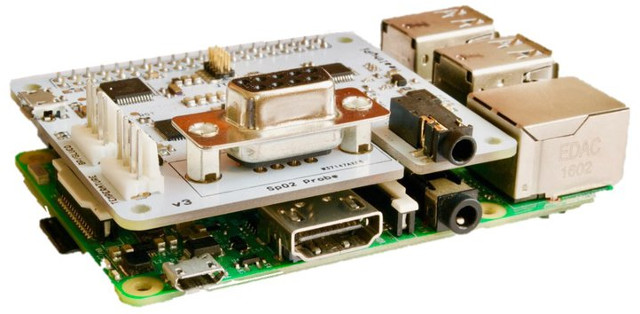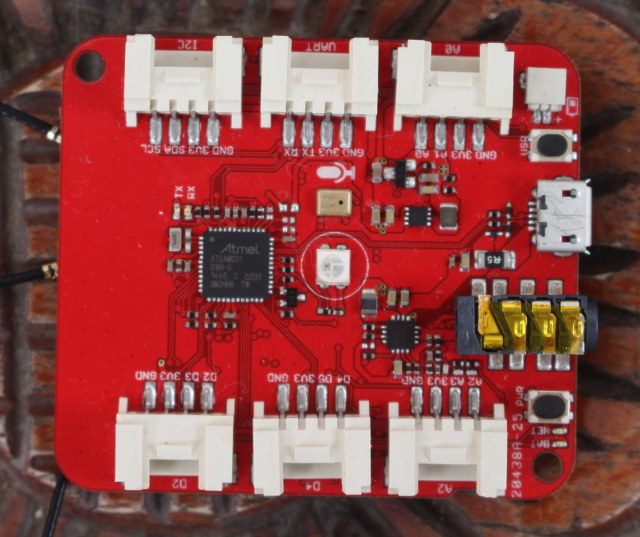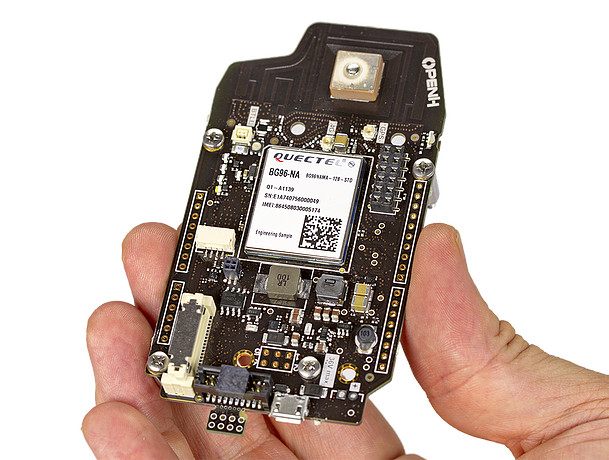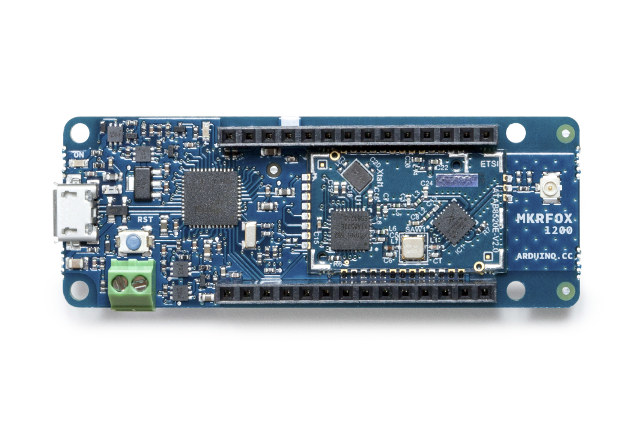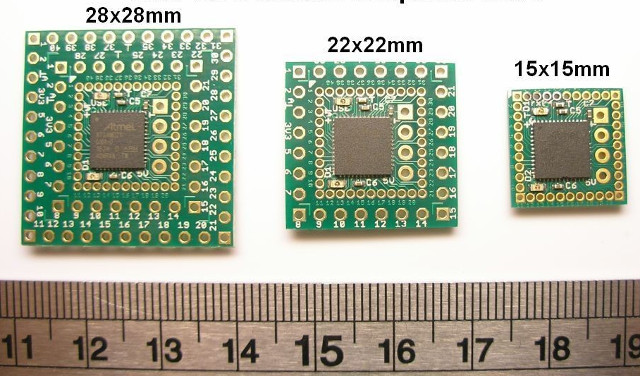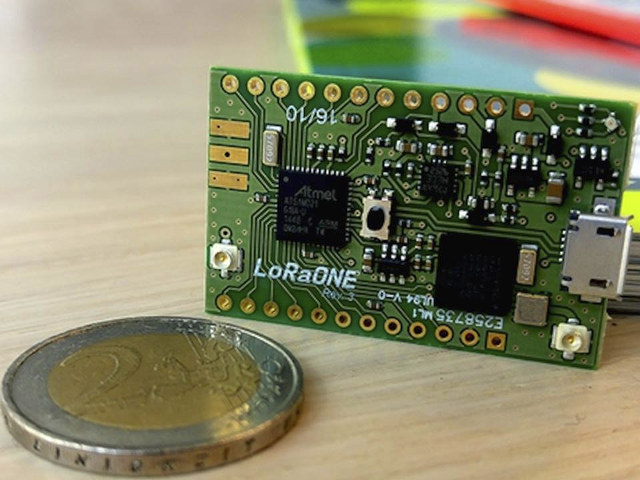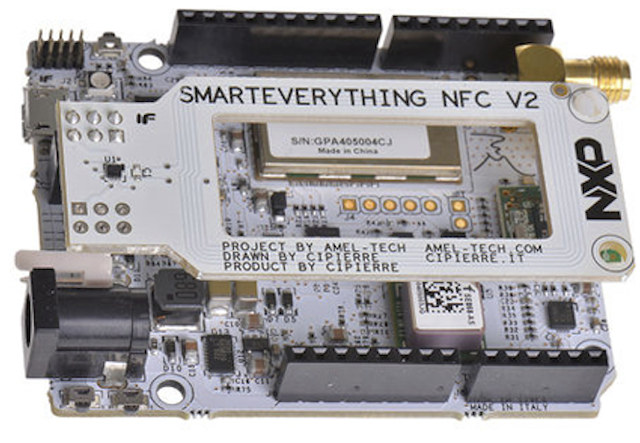Bangalore based ProtonCentral has launched the third version of Healthy Pi, a vital sign monitor using the Raspberry Pi as its computing and display platform, and capable of measuring body temperature, oxygen saturation, and ECG/respiratory data. Healthy Piv3 board specifications: MCU – Atmel ATSAMD21 ARM Cortex M0 MCU, compatible with Arduino Zero Vital Signs Chips ECG and respiration front-end – TI ADS1292R 24-bit analog front-end with SNR of 107 dB Pulse oximetry – TI AFE4490 Pulse Oximetry front-end with integrated LED driver and 22-bit ADC Temperature – Maxim MAX30205 digital body temperature sensor for skin temperature sensing Expansions Headers and Ports 1x 40-pin header to connect to Raspberry Pi 2x 3-pin connectors for temperature and BP/GLUCO DB9 connector for finger-clip Spo2 probe 3.5mm jack for ECG cable and probes 1x UART connector for an external blood pressure module USB – 1x micro USB port for power and programming Debugging – […]
Review of Wio Tracker with GPS, Bluetooth 3.0 and GSM Connectivity
Wio GPS – also called Wio Tracker – is an Arduino compatible board based on Microchip Atmel SAMD21 MCU with GPS, Bluetooth, GSM/GPRS connectivity, as well as several Grove connectors to connect sensors and modules for your IoT project. SeeedStudio sent me a sample for evaluation, so I’ve tested it, and reported my experience below by testing some of the Arduino sketches. Wio Tracker Unboxing All I got in the package was Wio GPS tracker v1.1 board. The top includes the Atmel MCU, an RGB LED, a microphone and 3.5mm AUX jack to make phone calls, a user and power button, a micro USB port for power and programming, a small 2-pin connector for a battery, and 6 Grove connectors for digital, serial, I2C and analog modules. The other side of the board comes with Quectel MC20 module that handles Bluetooth, GPS and GSM, a dual use micro SD card […]
OpenH PULSAR and QUASAR Boards Add 4G LTE Cat M1, or Cat 4/1 to Raspberry Pi Boards
We’ve seen a bunch of IoT boards with 2G connectivity recently including Orange Pi 2G-IoT, Wio GPS, and Nadhat, but while in some countries 2G will still work for many years, those boards are already obsolete – or soon will be – in many other countries. However, finding low cost 3G / 4G boards is more difficult, and while one solution is to use 3G or 4G USB dongles, “OpenH – Open Hardware” – part of KLiP Industries – has designed two boards with 4G connectivity provided by Quectel modules. OpenH PULSAR Board PULSAR board is compatible with Arduino Zero and features the following specifications: MCU – Atmel/Microchip SAMD21 ARM Cortex M0+ MCU (the as the one used in Arduino Zero) Connectivity 4G LTE Cat M1 modem with GPS (Quectel BG96-NA); No external antennas required Bluetooth and NFC Security – Dedicated management CPU with crypto engine Power Supply 10W digital power supply and battery charger with direct solar input FCC […]
Wio GPS is a $40 Grove & Arduino Compatible Bluetooth 3.0 + GSM/GPRS + GPS Tracker Board
After Wio Link and Wio Node boards, Seeed Studio has added a new board to their Wio (Wireless Input Output) family with Wio GPS board based on Microchip SAMD21 Cortex M0+ MCU for Arduino compatibility, and Mediatek MT2503 ARM7 processor for GPS, Bluetooth 3.0, and 2G (GPRS) connectivity. Wio GPS board specifications: MCU – Microchip ATSAMD21G18A-MU ARM Cortex M0+ MCU @ 48 MHz with 256KB flash, 32KB SRAM Wireless SoC – Mediatek MT2503 ARM7EJ-S processor @ 260 MHz Storage – micro SD slot (shared with nano SIM slot) Connectivity (built-in MT2503 in Quectel MC20 module) Bluetooth 2.1 + EDR, 3.0 with SPP Profile and HFP-AG Profile; u.FL connector for external antenna Quad band 2G GSM/GPRS with u.FL connector for external antenna and nano SIM card slot GNSS – GPS + BeiDou + QZSS with u.FL connector for external antenna Audio – Speaker footprint (+/-), 3.5mm AUX jack with mic and stereo audio […]
Arduino MKRFOX1200 Board Combines Microchip SAM D21 MCU with Sigfox Module in MKRZero Form Factor
Arduino MKRFOX1200 is the first official Arduino board to feature LPWAN technology thanks to a Microchip ATA8520 Sigfox module combined with a Microchip SAMD21 ARM Cortex M0+ micro-controller, all that in the same form factor as MKRZero or MKR1000 boards. Arduino MKRFOX1200 specifications: MCU – Microchip SAMD21 ARM Cortex-M0+ MCU @ 48 MHz with 256KB flash, 32KB SRAM Connectivity – Microchip AT8520 Sigfox module operating @ 868 MHz with 2dB “GSM” antenna connected to u.FL connector 2x 14-pin headers for I/Os: 8x digital I/O 8x external interrupts (0, 1, 4, 5, 6, 7, 8, A1 -or 16-, A2 – or 17) 7x analog inputs (8/10/12-bit ADC) 1x analog out (10-bit DAC) 12x PWM pins ((0, 1, 2, 3, 4, 5, 6, 7, 8, 10, A3 – or 18 -, A4 -or 19) 1x UART, 1x SPI, 1x I2C 3.3V operating voltage DC Current per I/O Pin 7 mA USB – […]
SAM 15×15 is a Tiny Arduino Zero Compatible Board based on Atmel SAMD21G18 MCU
Arduino Zero is an official Arduino board based on UNO r3 form factor but using Atmel SAMD21G18 ARM Cortex M0+ MCU instead of an AVR MCU. Albert van Dalen has decided to design a compatible module based on the same MCU, and called SAM 15×15, as its size can be trimmed down to as low as 15×15 mm. SAM 15×15 comparison with Arduino Zero and Uno boards. SAM 15×15 Arduino Zero Arduino Uno Microcontroller ATSAMD21G18A ATSAMD21G18A ATmega328P Digital I/O Pins digitalWrite digitalRead 34 20 14 Analog Output Pins (PWM) analogWrite 24 10 6 Analog Input Pins (ADC) analogRead 14 6 6 ADC resolution 12-bit 12-bit 10-bit 10-bit DACs 1 1 0 Flash Memory 256KB 256KB 32KB SRAM 32KB 32KB 2KB EEPROM 32KB (emulated in Flash) 32KB (emulated in Flash) 1KB CPU Speed 48MHz 48MHz 16MHz The board allows for three form factors to match your specific needs: 28 x 28mm […]
LoRaONE is a Small LoRa IoT Development Board Based on Atmel SAMD21 MCU, Microchip LoRaWAN Module (Crowdfunding)
While there are many long range LPWAN standards, LoRa appears to be one of the most popular with boards such as LoPy, and now SODAQ LoRaONE module hitting crowdfunding campaigns. LoRaONE is powered by an Atmel Cortex M0+ micro-controller, features Microchip RN2483 or RN2903 LoRaWAN module, GPS, and various sensors. LoRaONE board specifications: MCU- Atmel ATSAMD21G18 ARM Cortex M0+ micro-controller @ 48 MHz with 256 KB flash memory, 32KB SRAM, and up to 16 KB EEPROM (by emulation) Connectivity LoRa via Microchip RN2483 (433/868 MHz) or RN2903 (915 MHz) module depending on your region GPS via u-blox EVA 7M USB – 1x micro USB port for power and programming Expansion headers (unpopulated) 14x digital pin, 12x for analog and 8x for PWM, plus UART, SPI and TWI (I2C) Analog output pin – 10-bit DAC External Interrupts: Available on all pins DC Current per I/O pin: 7 mA Operating Voltage – […]
SmartEverything is a Feature-Packed IoT Board with SigFox, Bluetooth LE, NFC and GPS Connectivity, Plenty of Sensors
Atmel MCU Madness is an informal competition on Twitter where people vote for their favorite development boards. We are now at the quarter finals, and beside the usual suspects such as Raspberry Pi and ESP8266 boards, I also noticed one board that I had never heard of: AXEL Elettronica’s SmartEverything based on Atmel SAM D21 Cortex M0+ and featuring SigFox, BLE, NFC, and GPS connectivity, as well as various sensors such as humidity and temperature, 9-axis motion sensor, and so on. SmartEverything board specifications: MCU – Atmel SAM D21 ARM Cortex-M0+ MCU @ 48 MHz with 256KB Flash, 32KB SRAM Connectivity SIGFOX via Telit LE51-868 S SIGFOX 868 MHz Wireless Module with 12 months of network access included Bluetooth 4.0 LE via TDK SESUB-PAN-T2541 module based on Texas Instruments CC2541 NFC via NXP NT3H1101FHK NFC with separate antenna (included) GPS/GNSS via Telit Jupiter SE868-A GPS/GNSS module with integrated antenna. Supports […]


